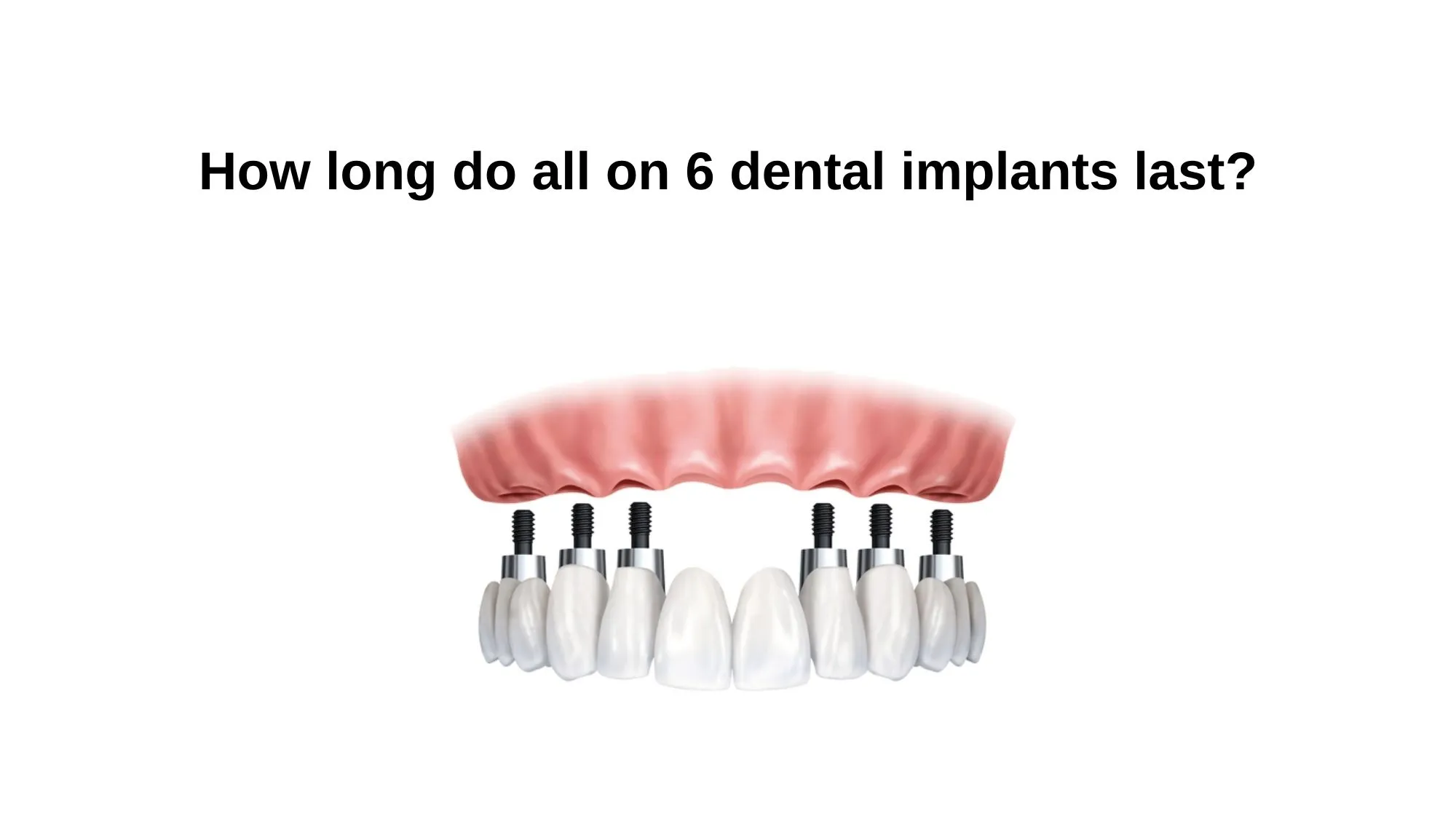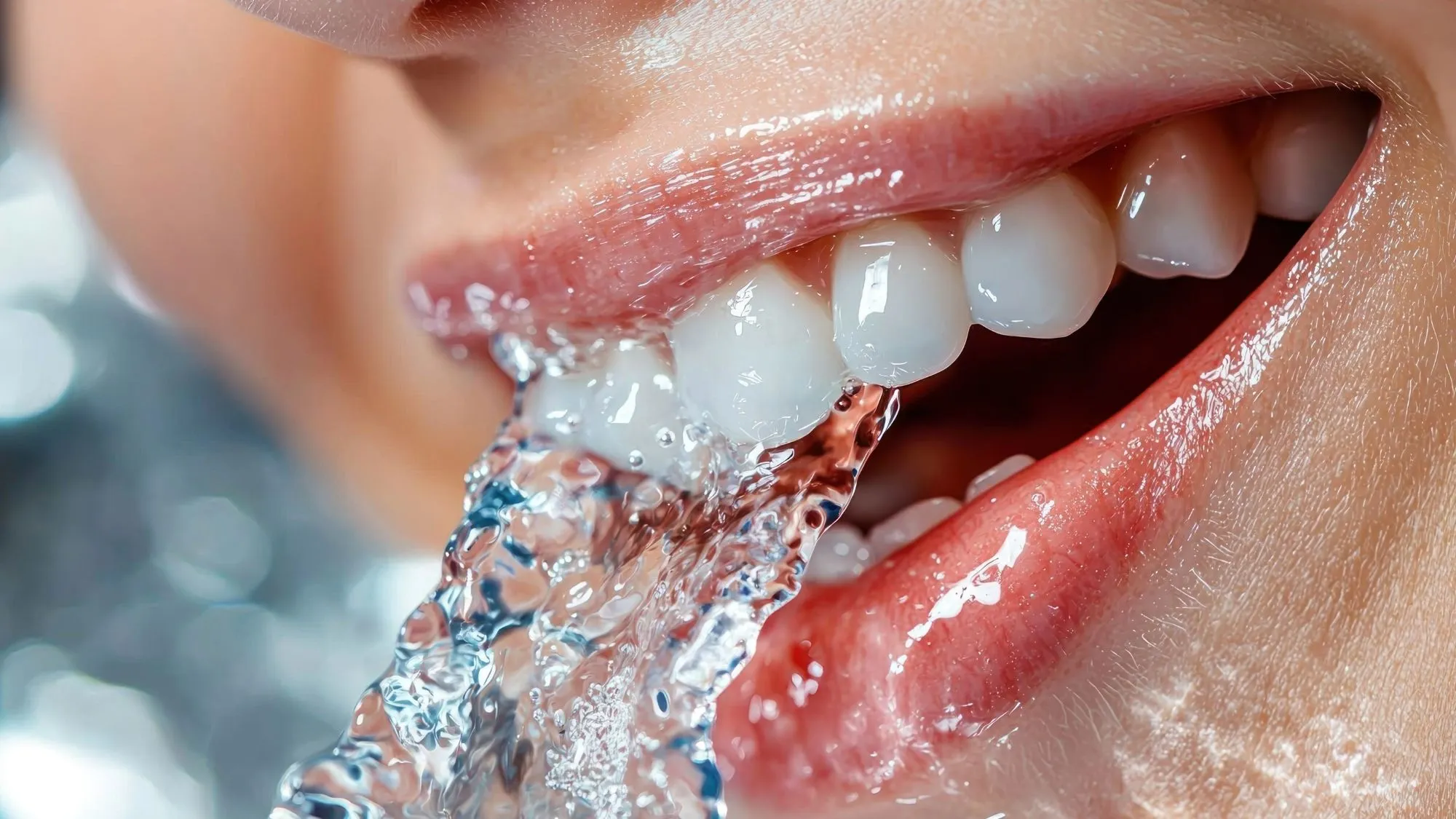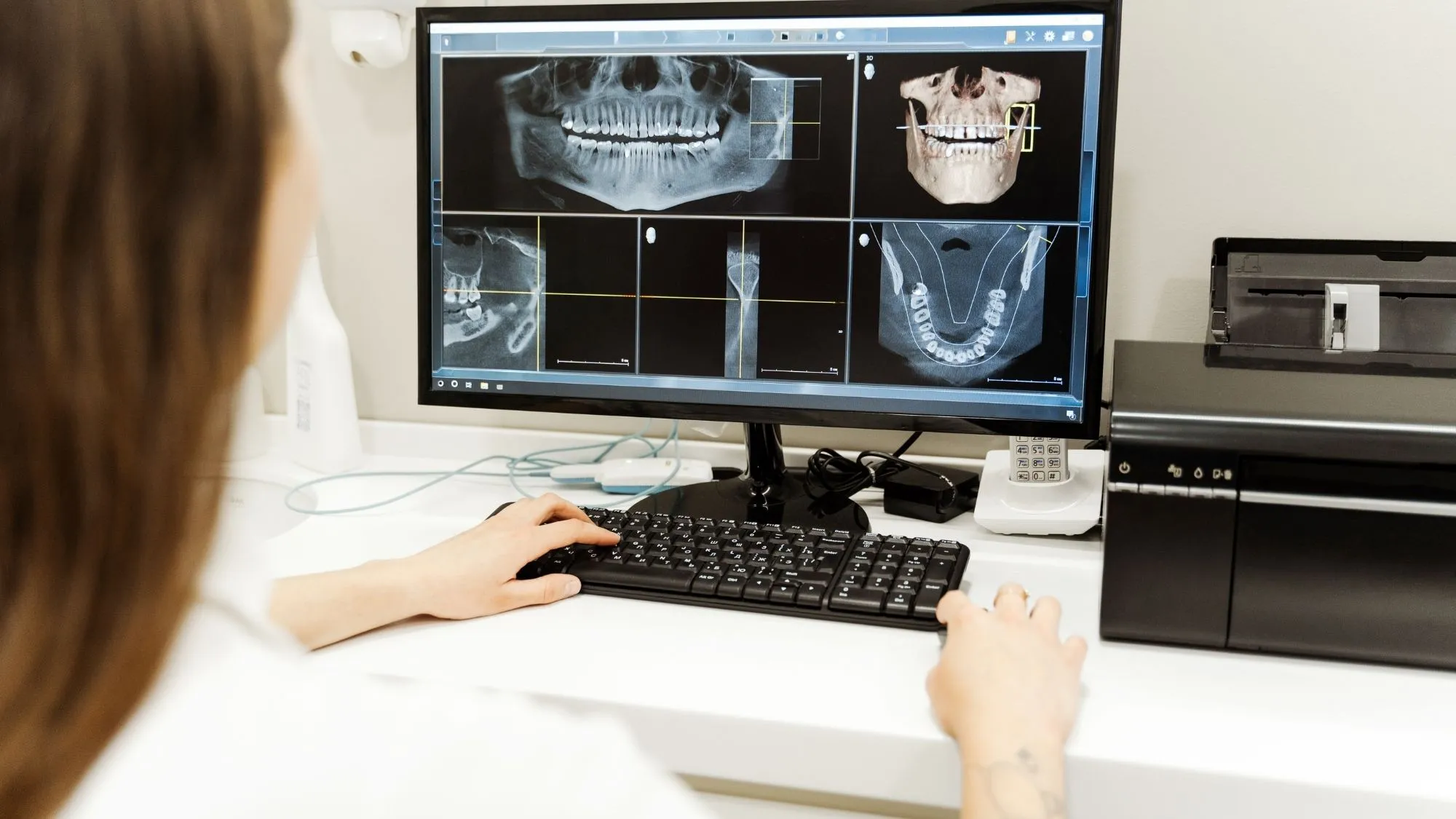
How Long Do All on 6 Dental Implants Last?
How long do All on 6 dental implants last?
Everyone wants a smile that lasts, right? Antalya All-on-6 implants promise just that strength and stability. But the real magic isn’t just in the implants themselves. It’s in what happens after you get them.
Want to know what really keeps your smile going strong? Let’s dive into the details that make all the difference.
What factors affect the lifespan of All-on-6 Implants?
So, you’ve got your All on 6 dental implants or maybe you’re thinking about getting them. Either way, the big question is: How long do these things actually last?
Good news: The implants themselves are made to stick around for decades. But… they’re not totally set-it-and-forget-it. How long they last really depends on how you take care of them, your health, and your habits.
Let’s break it down.

You still gotta clean them like real teeth
Just because implants can’t get cavities doesn’t mean they’re worry-free. Your gums and jawbone can get inflamed or infected. This is called peri-implantitis (basically implant gum disease), and it’s a major reason implants fail.
So yes, brush twice a day, floss, and rinse. A water flosser is even better.
Strong bones hold everything together
Implants bond with your jawbone in a process called osseointegration fancy word, but it just means the bone grows around the implant. If your bone’s weak or there’s not enough of it, the implant can wobble over time.

Tip: Eat foods rich in calcium and vitamin D. Your bones will develop well.
Not judging, just being honest smoking messes with healing. It reduces blood flow and raises your risk of infection. Studies say smokers are twice as likely to have dental implants issues.
Even cutting down a bit can help your mouth heal better.
Some health conditions matter
Stuff like diabetes, autoimmune problems, or bone disorders make healing harder. Doesn’t mean implants are off the table; it just means your dentist might need to team up with your doctor to plan carefully.

Quality implants make a big difference
Not all implants are created equal. The good ones are made from titanium or Antalya zirconia and are super friendly with your jaw. Also, how they’re placed matters, so go with someone who’s done this a lot!
Are you a nighttime teeth-grinder?
Grinding or clenching your teeth (even if you don’t know you do it) puts a ton of pressure on your implants. Over time, that causes issues.
A simple night guard can protect your smile, especially if you’re a stress-grinder. (Totally common, by the way.)
Your diet helps more than you think
You don’t need to eat mush forever, but during healing, skip the tough, sticky, or super sugary stuff. Later on, focus on a balanced diet; your bones need good fuel!
And yes… chewing ice or a pencil is a no-go.
Don’t skip the dentist
Most implant issues start small and sneaky. A little swelling, a bit of bone loss… then bam, bigger problems. Seeing your dentist every 6 months helps catch stuff early before it turns into a mess.
Your bite should be balanced
If some implants are taking more pressure than others when you bite down, they’ll wear out faster. Your dentist can adjust the prosthetic teeth so everything’s even.
How durable are All-on-6 implants?
All-on-6 implants go deep into your jawbone, just like natural roots. That’s what makes them stable. They don’t move. They don’t shift. They actually fuse with the bone. It’s called osseointegration, and it’s a big reason why they last so long.
Now, here’s the real talk: they’re tough, but they’re not invincible. If you take care of them, brush daily, keep your gums healthy, skip smoking they’ll take care of you for 20 years or more. Some people keep them for life.
Think of them like a tree with deep roots. The stronger the roots (your implants), the steadier the tree (your smile). Wind, rain, time… doesn’t matter. That smile stands strong.
But here’s a thing no one tells you: your bone health is everything. Without strong bone to support the implants, they can weaken. That’s why dentists often check bone density before treatment.
And maintenance? Nothing wild. Just regular check-ups and daily care. Same as natural teeth. No complicated routines.
Do All-on-6 dental implants last a lifetime?
They definitely can. The secret? Good care.
Antalya All on 6 dental implants are built to last 20+ years is common, and many go the distance for life.
They’re strong, stable, and fuse with your bone like natural roots. That’s why they last way longer than dentures.
How does the quality of the clinic affect lifespan?
Let’s be real, not all dental clinics are equal. When it comes to something as important as All-on-six implants, the clinic you pick makes or break the long-term success of your new smile.
A skilled, experienced implant dentist knows how to:
Read your bone structure, choose the right angle and depth for each implant, avoid nerves or weak bone areas, handle unexpected situations on the spot.
It’s a mix of science, art, and precision.
A great clinic won’t just say “See you never!” after your implants are in. Instead, they’ll:
Check your healing, track your bone and gum health, spot small issues before they become big ones, adjust your bite or cleaning habits if needed. This kind of support helps your implants last much longer—sometimes for life.
Quality clinics don’t rush you into treatment. They explain everything:
Whether you’re a good candidate, what risks you might face, what kind of maintenance your specific case needs, They put your long-term success first, not just the payment.
How can I ensure my All-on-6 implants last longer?
13 simple tips to make them last:
- Brush twice a day—just like natural teeth.
- Use a soft toothbrush—be gentle on your gums and implants.
- Floss daily—especially around the gum line.
- Use a water flosser—great for cleaning under the bridge.
- Avoid smoking—it slows healing and weakens bone.
- Go easy on super hard foods—like ice or hard candy.
- Cut down on sugar—keeps your gums healthier.
- Get regular dental checkups—every 6 months, no skipping!
- Clean your implants professionally—your dentist can do a deep clean.
- Treat teeth grinding (bruxism)—A night guard can protect your implants.
- Watch for gum changes—redness or swelling? Get it checked.
- Stay healthy overall—diabetes and bone issues can affect implant life.
- Follow your dentist’s advice—every smile is different; trust their plan.
What happens if my implants fail?
The implant doesn’t bond with the bone or it becomes loose later.
Your body didn’t accept it. That’s all. It doesn’t happen often, especially with All-on-6.
Signs to watch for pain that doesn’t go away, swollen or bleeding gums, a loose feeling in the implant, bad breath, or a weird taste. When you notice these symptoms, remember that you should take precautions by contacting your dental clinic.